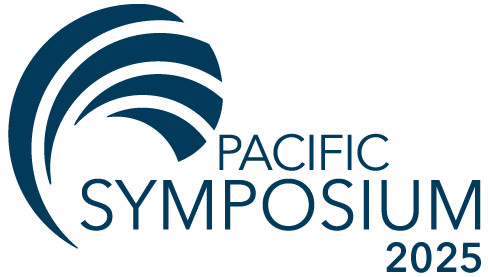
Dr. Yair Maimon PhD OMD Lic.Ac, Dr. Julia Hartung MD, Patricia Bock, Guy Traiber
Introduction
Oncology acupuncture is an integrative therapeutic approach that combines principles of traditional Chinese medicine (TCM) with contemporary oncology practices to enhance the quality of life (QoL) for cancer patients. For example, a common condition that hinders QoL is constipation, a distressing side effect frequently experienced by cancer patients, affecting approximately 40-60% of those undergoing treatment. In a 2017 study, Wickham reported that constipation occurs in nearly 60% of individuals with cancer, particularly those receiving opioid analgesics or medications with anticholinergic properties (Advanced Practitioner). Additionally, a systematic review by Hanson et al. in 2019 highlighted the increased incidence of constipation in cancer patients due to chemotherapy and other treatments (Oncology Nursing Society | ONS | ons.org) .
Conventional treatments for constipation, such as laxatives and stool softeners, often provide limited relief and can be associated with adverse effects like dehydration and electrolyte imbalance. According to a 2016 review by Tian et al., these treatments frequently fail to address the multifactorial causes of constipation, which include chemotherapy, opioid medications, reduced physical activity, and psychological stress (Oncology Nursing News).
Acupuncture, with its long history, offers a promising complementary approach to addressing constipation in cancer patients. This paper aims to elucidate the potential of acupuncture in mitigating gastrointestinal disturbances, with a particular focus on constipation. We will explore specific acupuncture points, notably St-44 and Li-2, which have shown promise in managing this condition.
By fostering a deeper understanding among TCM practitioners and oncology specialists, we seek to highlight the significant role acupuncture can play in improving patient outcomes and symptom management. This research addresses a gap in current literature by providing a focused examination of specific acupuncture points and their application in oncology-related constipation.
Our goal is to offer insights into an integrative approach that combines the wisdom of traditional practices with the rigor of modern oncology, potentially providing relief for cancer patients where conventional methods alone may fall short.
Pathophysiology of Gastrointestinal Issues in Cancer Patients
Gastrointestinal (GI) disturbances, such as constipation, are prevalent among cancer patients. These issues arise due to various factors, including chemotherapy, opioid medications, reduced physical activity, and psychological stress. Constipation in cancer patients can lead to significant discomfort, impacting their overall well-being and quality of life.
Constipation is not merely a nuisance; it can lead to severe complications such as bowel obstruction, fecal impaction, and exacerbation of pain and nausea. The causes of constipation in cancer patients are multifaceted. Chemotherapy drugs, for instance, can alter bowel motility and reduce the secretion of fluids in the intestines. Opioids, commonly used for pain management, significantly slow gastrointestinal transit, leading to opioid-induced constipation (OIC). Furthermore, reduced physical activity due to fatigue or hospitalization contributes to decreased bowel movements.
Psychological factors, including anxiety and depression, can also exacerbate constipation. Stress and emotional distress influence the autonomic nervous system, which regulates bowel function, thereby leading to gastrointestinal disturbances. Addressing these underlying causes through a holistic approach is crucial for effective management.
TCM Perspective on Constipation
In TCM, constipation is often viewed through the lens of qi stagnation, yin deficiency, or heat accumulation. One common diagnostic pattern is Yang Ming Heat, where heat accumulates in the Stomach and Large Intestine, leading to dry stools and difficult defecation. Understanding these patterns is crucial for effective treatment, but for the purpose of this paper, we will focus on this single pattern as an example.
The Yang Ming channels, specifically the Stomach (ST) and Large Intestine (LI), are responsible for processing and eliminating waste. When pathogenic heat accumulates in these channels, it dries out the fluids necessary for smooth bowel movements, resulting in hard stools and infrequent defecation. This condition is often exacerbated by poor dietary habits, such as the consumption of spicy and greasy foods, which further contribute to heat accumulation.
The treatment principle for Yang Ming Heat involves clearing heat and promoting the movement of qi and fluids in the intestines. By addressing the root cause of the heat accumulation, TCM aims to restore normal bowel function and alleviate constipation.
Understanding Cancer Patients: Risks and Contraindications
While acupuncture offers significant benefits for managing symptoms like constipation in cancer patients, it is crucial to be aware of potential risks and contraindications. For example, patients with low platelet counts or those on blood thinners may be at increased risk of bleeding or bruising from needle insertion. A study by Lau et al. (2016) highlighted the importance of considering such factors when applying acupuncture in oncology settings, emphasizing the need for tailored approaches to ensure patient safety.
Therefore, it is essential to deepen our knowledge of cancer, its treatments, and associated side effects before initiating acupuncture treatments. By understanding the unique needs and conditions of cancer patients, TCM practitioners can tailor their approaches to ensure safety and efficacy. Comprehensive patient assessments and close collaboration with oncology specialists are vital in mitigating risks and enhancing the overall therapeutic outcomes. This approach fosters trust and maximizes the potential benefits of acupuncture in oncology care.
Acupuncture Points and Techniques for Treating Constipation
Effective management of constipation in cancer patients can be achieved through the careful selection of acupuncture points. While many points can be utilized, in this paper, we specifically focus on two key points: St-44 and Li-2.
St-44 (Neiting)
St-44 is a powerful point located on the dorsum of the foot, between the second and third toes. It is the water point of the St channel and Yang Ming of the hand, therefore adding water cooling lubricating quality, and therefore clear heat from the Stomach and intestines, thereby promoting the downward movement of qi and alleviating constipation. This point is particularly effective in treating symptoms associated with Yang Ming Heat, such as dry mouth, bad breath, and a red tongue with a yellow coating. For cancer patients who often experience internal heat due to medications and stress, St-44’s heat-clearing property is crucial. Regular stimulation of St-44 can significantly reduce internal heat and restore the moisture balance in the intestines, facilitating smoother bowel movements. Additionally, St-44, being a water point on the Stomach meridian, helps to moisten the intestines, addressing the dryness that contributes to constipation.
Li-2 (Erjian)
Li-2 is located on the radial side of the index finger, distal to the metacarpophalangeal joint. It is the water point of the Li channel and Yang Ming of the foot, therefore adding water cooling lubricating quality and therefore this point is particularly effective in clearing heat from the Large Intestine and moistening the intestines. It is beneficial for treating dry stools and difficult defecation caused by heat accumulation, which is a common issue among cancer patients on various medications, especially opioids. Li-2 also plays a crucial role in regulating the body’s water metabolism, ensuring that sufficient fluids are available in the intestines to facilitate bowel movements. Regular use of Li-2 can help maintain a balanced intestinal environment, preventing the recurrence of constipation. As a water point on the Large Intestine meridian, Li-2 is instrumental in reintroducing moisture to the intestines and aiding in the smooth passage of stools.
Other important points, such as Sp-15, St-36, and Li-11, are also used in the treatment of constipation. These points help in regulating qi movement and ensuring the smooth flow of digestive processes. Sp-15, for example, is effective in moving the bowels and relieving constipation. St-36 is a well-known point for strengthening overall digestive function and boosting qi, while Li-11 helps to clear heat from the body and regulate bowel movements. Using acupuncture, we can offer targeted relief and improve the overall quality of life for those undergoing cancer treatment.
Adjunct Therapies and Lifestyle Recommendations
In addition to acupuncture, several adjunct therapies and lifestyle changes can support the treatment of constipation. Dietary modifications, such as increased fiber intake and hydration, are fundamental. Regular physical activity and stress management techniques, such as taiji and qigong, can also enhance treatment outcomes.
Dietary recommendations for cancer patients often include the consumption of high-fiber foods such as fruits, vegetables, and whole grains. These foods add bulk to the stool and promote regular bowel movements. Hydration is equally important, as adequate fluid intake helps soften the stool, making it easier to pass. Patients are encouraged to drink plenty of water throughout the day and to avoid dehydrating beverages like caffeine and alcohol.
Physical activity, even in moderate amounts, can stimulate bowel function and improve overall health. Exercises such as walking, yoga, and gentle stretching are particularly beneficial for cancer patients who may be experiencing fatigue. Additionally, stress management techniques like meditation and deep breathing exercises can help alleviate the psychological factors contributing to constipation.
Case Study: Clinical Application
A 65-year-old female cancer patient undergoing chemotherapy presented with severe constipation. She reported hard, dry stools and infrequent bowel movements. The treatment focused on the points St-44 and Li-2, along with lifestyle recommendations. Within three weeks, the patient’s symptoms significantly improved, demonstrating the effectiveness of this integrative approach.
The patient initially experienced severe discomfort due to her constipation, which was unresponsive to conventional laxatives. After a thorough assessment, a TCM diagnosis of Yang Ming Heat was established. Acupuncture sessions were conducted twice-weekly, focusing on St-44 and Li-2. Dietary adjustments included increased fiber intake through fruits and vegetables, and a hydration regimen was implemented.
Within the first week, the patient reported a noticeable reduction in abdominal discomfort and an improvement in stool consistency. By the end of the third week, she experienced regular bowel movements, significantly enhancing her quality of life. This case underscores the potential of acupuncture as a complementary therapy in managing chemotherapy-induced constipation.
Discussion
The integration of acupuncture into oncology care offers a holistic method to manage side effects like constipation. By addressing both the physical and emotional aspects of health, acupuncture can significantly enhance patient well-being. This paper underscores the potential of TCM in oncology, promoting a broader understanding among professionals of the extensive benefits acupuncture can provide.
Acupuncture’s ability to target specific physiological pathways and restore balance within the body makes it a valuable tool in cancer care. By focusing on points such as St-44 and Li-2, practitioners can effectively alleviate constipation and improve overall gastrointestinal function. Furthermore, the inclusion of lifestyle and dietary modifications enhances the efficacy of acupuncture, providing a comprehensive approach to patient care.
The benefits of acupuncture extend beyond symptom management. It can improve patients’ emotional well-being, reduce anxiety, and enhance their overall quality of life. The holistic nature of TCM addresses all aspects of a patient’s health, leading to more sustainable and effective treatment outcomes.
Conclusion
Oncology acupuncture is an important component that can be integrated in various aspects of cancer care. By focusing on specific acupuncture points such as St-44 and Li-2, we can effectively manage constipation with the diagnosis of Yang Ming heat in cancer patients, improving their quality of life. This paper encourages TCM practitioners to explore and incorporate these techniques, within the realm of oncology care.
As TCM professionals, it is essential to stay informed about the latest developments in integrative oncology and to continuously seek out new ways to enhance patient care. By embracing a holistic approach of Chinese medical diagnosis alongside modern practices, we can offer our patients the best possible outcomes and significantly improve their quality of life during and after cancer treatment.
- Wickham, R. J. (2017). Managing constipation in adults with cancer. Journal of the Advanced Practitioner in Oncology, 8(2), 149-161.
- anson, B., Suares, N. C., Ford, A. C. (2019). Systematic review: the effectiveness of treatments for opioid-induced constipation. Alimentary Pharmacology & Therapeutics, 50(6), 509-526.
- Lau, C. H., Wu, X., Chung, V. C., Liu, X., Hui, E. P., Cramer, H., … & Wu, J.C. (2016). Acupuncture and related therapies for symptom management in palliative cancer care: systematic review and meta-analysis. Medicine, 95(9).]
